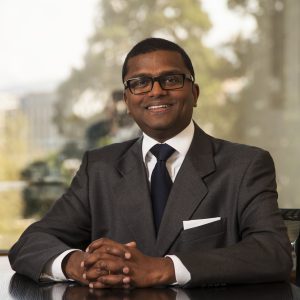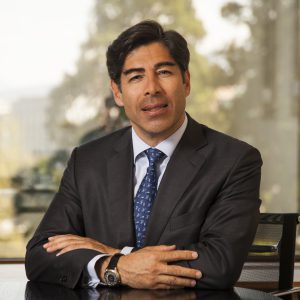2015 was challenging year for most asset classes. The InvestHedge Composite, which tracks the median performance of the funds of hedge funds that report to the InvestHedge database, was up by a minimal 0.3% – one of the lowest returns since InvestHedge began tracking FoHF performance in 1998.
European markets remained volatile in 2015 with and intra-year drawdown of 17% which was worse than the previous 3 years so you had to have significant short exposure in your book and/or have a portfolio small enough to be able to swing your exposures around when there were shocks in the market. It was only 6 of the nineteen sectors in European market indices that took the market down in 2015 so if you were shorting the right sectors you would have made a lot of money. Value did poorly in 20015 (historically Value almost always outperforms Growth). There was a clear disconnect in PE valuations (usually typical in a “flight to garbage” environment). A number of distortions in equity valuations have been caused by big moves in currencies, commodity prices and interest rates (mostly negative real rates), flows into ETFs (e.g. WisdomTree Europe) and M&A activity (cheap to finance debt).
In the US a number of managers were hit by crowded trades (the GURU index or Goldman Sachs VIP index both underperformed the S&P). The US market had very little breadth and if you were not invested in any of the FANGs (Facebook, Amazon, Netflix and Google) you were probably down for the year. Unlike Europe, the US market had very little breadth. The decline in the price of oil had a big impact for managers with significant exposure to the sector (shale oil plays and LNG) together with the healthcare sector that turned following Hillary Clinton’s comments on the exorbitant pricing of certain drugs from a company that turned out to be a fraud. Valeant and Sun Edison were probably the two US stocks that hurt managers the most. Most of the largest US hedge funds (commonly held in most fund of hedge funds and historically have done well) had one of their worst years in terms of performance.
Global equity market neutral managers relying on multi-factor/quant models that were running with significant amounts of leverage together with correlated factors did poorly in 2015.
As most equity long short managers tend to be more focused on bottom-up stock picking as opposed to trading their book around macro events (given their size) it is not surprising that these managers would have been hit hard by market drawdowns and forced to de-risk (probably at the worst time) before witnessing sharp rebounds in the market (a common monthly phenomenon throughout the year).
On the macro front, overall a disappointing year where many were positioned on the same trade (long USD and/or short EM via developed market stocks).
European equities was one of the best performing strategies however, and Notz-Stucki’s long/short fund was amongst the strongest performing funds of its peer group. What factors contributed to the improved conditions for European equity-focused hedge fund strategies and how did Notz Stucki accomplish its strong return?

For Caron Bastianpillai, portfolio manager at Notz Stucki, European equity long short strategies benefitted from a number of tailwinds in 2015 that included a weak Euro, lower commodity prices, good M&A environment bar tax inversion deals, Quantitative Easing initiatives by the European Central Bank and extreme volatility within sectors and countries which provided both good buying and shorting opportunities.
According to Bastianpillai, Notz Stucki benefitted from a more concentrated portfolio that has a blend of directional and less directional managers.
“Stock picking was key as was positioning in terms of sectors. We had no exposure to multi-factor quant (market neutral) or macro managers most of which underperformed last year (a number of factors became correlated and growth / momentum factors experienced sharp reversals during the year). The short side was profitable for a number of managers particularly in stocks related to the commodity sectors such as oil and mining, and there were great opportunities on the long side from low cost airlines, telcos, beverages, consumer retail, media, industrials and homebuilders,” said Bastianpillai.
According to Bastianpillai a number of US managers were hit by crowded trades. The US market had very little breadth and if managers were not invested in FANG – Facebook, Amazon, Netflix and Google – they were probably down for the year. The decline in the price of oil had a big impact for managers with significant exposure to the sector together with the healthcare sector.

Hilmi Ünver, head of alternatives at Notz Stucki, believes we will see more volatility and with an election year in the US and the low oil price contributing to the challenges there could be a repeat of 2015 – with more bad news. For Ünver, credit will be a major issue and the price of securities will fluctuate in wide ranges in a day without any fundamental reason.
“There is a feeling that we have hit some sort of crisis. Liquidity issues are under estimated and markets look pretty liquid until you need it. In my view 2016 is going to be about stock picking and timing. Whoever has the marginal capital will be the Boss! We didn’t see anyone investing in the equity markets on a fundamental basis in 2015, only momentum driven investing. Going into 2016 we want to see markets behaving more rationally and with more trust and convictions in fundamentals,” Ünver said.
“The best way to navigate in 2016 will be investing through hedge funds that will be nimble, have the ability to remain humble and not desperate to make money at any cost.”
The firm’s outlook for 2016, what strategies you will look to allocate to overall and also the firms outlook for European equities specifically?
With volatility here to stay pending more favourable macro data, low net exposure / market neutral strategies with a diversified multi-PM approach should fare better. We remain underweight in Emerging Markets in general. We would tend to favour managers that have a flexible approach in adjusting their gross and net exposures to changes in the global macro environment. Pure bottom-up stock pickers will continue to suffer from market volatility particularly if they have a lot of cyclical exposure.
This article was prepared by Caron Bastianpillai and Hilmi Unver.